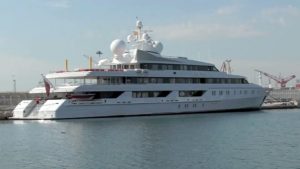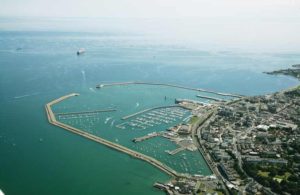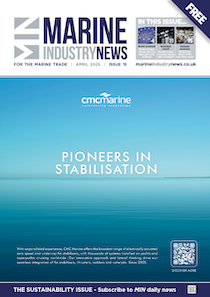Joint statement from ICOMIA, NMMA and EBI over Trump’s duties

The EU and US marine industries have appealed for constructive solutions to the potential trade war following President Trump’s announcement to impose additional import duties on EU exports of steel and aluminium to the United States and the subsequent reaction of the European Union to put in place a safeguard-imposed tariff with a retaliatory list, has elicited a joint response from The International Council of Marine Industry Associations (ICOMIA), European Boating Industry (EBI) and the National Marine Manufacturers Association (NMMA) who have issued the joint statement below:
We, the undersigned, regret the current trade escalation between the USA and the EU and call for a constructive solution from all parties.
At the risk of repeating the vast majority of economic experts: there is no winner in a trade war. We are concerned that the recreational boating industry is being caught in the middle of a political battle, with extremely serious consequences for the sector on both sides of the Atlantic. President Trump’s recent announcement to impose a worldwide import tariff on aluminium (10%) and steel (25%) has faced criticism abroad, including a proposal by the European Union to put a range of US made products, including recreational vessels, on a retaliatory tariff list.
In the US, the recreational boating industry contributes $38.2 billion to US gross domestic product (GDP), supporting 35,000 businesses and 650,000 direct and indirect jobs. In the EU, the recreational boating industry accounts for over 32,000 businesses directly employing more than 280,000 people and generating an annual turnover of nearly 20 billion euros. It brings benefits to the overall economy; for instance, in Italy, it represents 1,46 ‰ of the GDP.
The worldwide tariff on aluminium and on steel imports, impose by President Trump, will have direct and adverse consequences on the global boating industry. Aluminium is a critical raw material for boat and marine component manufacturing, and increased costs for US manufacturers to source this product will disrupt sales to a pontoon and aluminium fishing segment that accounted for $3 billion in US sales and 110,000 boats.
Such an escalation reminds us of the steel dispute of 2002, when the Bush Administration imposed tariffs ranging from 8% to 30% on a wide range of steel products for a three-year period. History seems to repeat itself: the EU notified the WTO that it reserved its right to rebalance the adverse effect of the US steel safeguards. It subsequently issued a list of products – which included motor boats.
As a result, 200,000 jobs were lost in the USA, in the steel industry and in downstream industries.
In Europe, the inclusion of recreational boating in a retaliatory tariff list will not protect the European
industry and will further burden American boat manufacturers:
- The EU is the second biggest trading partner for US boat manufacturers. In 2016, $217.4 million worth of boats and $148.3 million worth of engines from the US was exported to the EU market, totalling 18.4% of all US exports.
- 12-30% of the retail price of a boat sold in the EU which originated in the USA is for services required to place it on the market ie marketing, distribution, fitting of locally sourced equipment, transport, commissioning and agent profit and are monies that contribute directly to the EU members’ economies.
- Such is the segmentation of the market, not all US craft sold in Europe could easily be replaced by EU manufactured boats, or within the existing capacity of EU manufacturers (the development, tooling and creation of moulds to manufacturer new boat models is a year-long proposition).
While protecting the European market with safeguard measures is unlikely to achieve its objective, the decision of President Trump to impose import duties on steel and aluminium will definitely affect the European boating industry. It will undermine the recent recovery of an industry which was badly damaged by the 2008-09 economic crisis but which is still a significant contributor to the European economy, employing more than 280,000 people.
It will severely impact the US economy as well, resulting in higher costs for aluminium as a critical raw material for boat building and reducing US global competitiveness should recreational craft be placed on retaliatory tariff lists.
We have in the past expressed our subscription to the idea that mutually beneficial economic growth is achievable through tariff elimination, simplified certification procedures and internationally harmonized standards. We reiterate our conviction that a reasonable and balanced partnership between the USA and the EU, which does not threaten growth, jobs and innovation, is the only sustainable way forward.










